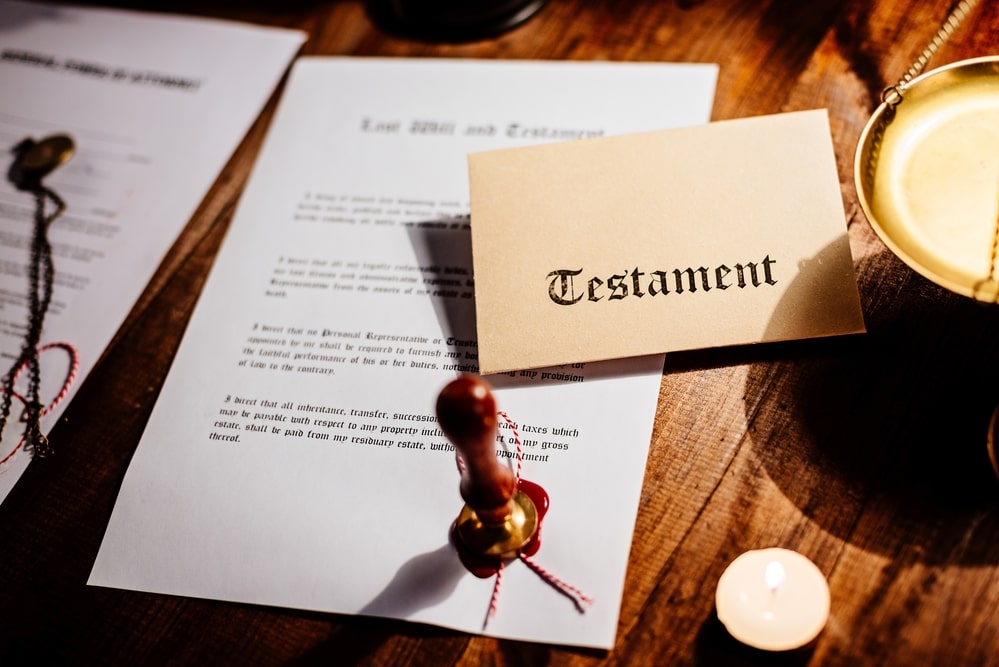
Mistakes when making wills and distributing one’s assets can create costly disputes that damage family relationships.
It helps to know as much as possible about estate planning and wills before you start the process so that problems are avoided down the track.
While it’s impossible to cover everything you need to know here, the following frequently asked questions should start you off in the right direction before you meet with your estate planning lawyer.
How can I write a valid will in Alberta?
For a will to be valid in Canada, it needs to be:
- In writing
- Made by a person over the age of 18
- Signed and dated by the testator (or an authorized representative)
- Witnessed
Each of the three types of wills has a set of requirements when it comes to signing and witnessing the document:
- Non-Holographic Wills (the most common nowadays): these are dated and signed at the bottom by the testator and two witnesses. All witnesses must observe the testator and the other witness sign.
- Holographic Wills (less common nowadays): these are written entirely by hand by the testator and signed at the bottom.
- Military Wills (for a member of the Canadian Armed Forces): these must be dated and signed at the bottom by the testator and do not require a witness.
What happens if a will is invalid?
If a will is deemed invalid, the Wills and Succession Act (Alberta) has provisions for the distribution of the estate – or the portion of the estate affected by the invalid section of the will.
Generally, this means dividing the estate among the relatives and could even mean a portion of the estate going to family members not named as beneficiaries in the will.
The “degree” of consanguinity/relationship is generally the prime consideration when it comes to apportioning the affected part of the estate. It will go to (in order): spouse or children, parents, siblings, nieces and nephews, and then next of kin.
If no beneficiaries of the estate can be located, assets are transferred to the provincial government in Alberta.
What should I do if I get married or divorced after creating my will?
If you are married or in a common-law relationship in Canada, you have a legal obligation to support your spouse if you pass away first reasonably.
Both the Family Property Act and the Wills and Succession Act address this issue. If your will has no provision for the support of your surviving spouse (even if you are separated), he or she may make a claim against the estate.
Wills must be kept up to date to reflect your personal circumstances – marriages, divorces, family additions, and adoptions are good examples of changes in circumstances that may affect a will.
Updates ensure that bequests accurately reflect your intentions at the time of death, potentially avoiding costly challenges and disputes for the loved ones you leave behind.
If you pass away while you are separated but before the final divorce agreement is issued, the divorce is not considered final. In this case, if the separated spouse is appointed as executor of the will, he or she will retain this responsibility and must be adequately supported by its contents.
How can I update my will?
If you want to update your will, you don’t have to start again from scratch. Updates are usually made by executing a codicil, which details any changes to your will.
For these changes to be valid, you must abide by the same signing/witnessing specifications that applied when you created your will.
Is a Grant of Probate necessary in Alberta?
Every will in Alberta requires a Grant of Probate unless all its property and assets are jointly held with a spouse (or others).
The Grant of Probate is the Surrogate Court’s certification that the will is valid and that the executor has the authority to distribute the estate’s assets.
This authority allows the land office to legally transfer titles to the executor and on to the beneficiaries, and for financial institutions to release the funds they hold. Without the necessary certification, institutions may be at risk of fraudulent activity.
If all assets are jointly owned, they can pass to the spouse (or others) without going through the probate process as there is an automatic “right of survivorship”.
In the absence of a will, a Grant of Administration may be issued by the court instead of a Grant of Probate.
Am I obligated to leave anything to my children in Alberta?
As well as supporting a surviving spouse from a marriage or common-law relationship, you have a moral and legal obligation to support the needs of any dependent individuals.
This includes minor children, minor grandchildren or great-grandchildren (if you acted as a parent), as well as adult children who remain dependent due to physical or mental disability.
Failure to provide reasonable support could mean an intervention by the Court to reapportion part of your estate.
For this to happen, an application must be made within six months of the Grant of Probate or Grant of Administration.
How can I minimize estate tax in Alberta?
Canada does not have “estate taxes” per se but you will be taxed under a “Terminal Return”, which operates like an Income Tax Return for the final year of life.
This generally attracts high taxes, which reduce the inheritance for loved ones.
Talk to your accountant before trying to minimize tax on your estate but the following are some common tax-efficient strategies to consider:
- Distribute your assets through “gifts” while you are still alive
- Apply the Income Tax Act’s provision to “freeze” your estate to delay payment of tax
- Place assets into a Qualified Disability Trust for a disabled dependent (if applicable)
- Place assets into a Spouse Trust, allowing your spouse to use the income but delaying the capital gain liability until the assets are disposed of upon his or her death
How does an enduring power of attorney work in Alberta?
By creating an enduring power of attorney, you authorise a trusted person to act on your behalf with regards to your property and finances, if you lose the mental capacity to make decisions yourself.
The named “attorney” or “attorneys” have the power to make decisions relating to assets, real property, and investments and must act with “utmost good faith” to protect your interests.
For the enduring power of attorney to come into effect, a capacity assessor must find that you are no longer mentally competent.
If this happens, decisions can still be made about your finances without your loved ones having to apply to the Court of King’s Bench to appoint a trustee on your behalf under the Adult Guardianship and Trusteeship Act.
An enduring power of attorney continues until you pass away, after which time the last will dictates decisions regarding your finances.
Why create a personal directive?
Two major issues that confront many families are making decisions about finances and healthcare as their loved ones age.
Once a loved one loses mental capacity, who makes these decisions? It can cause tension and disputes with families.
Financial decisions are covered by an enduring power of attorney (see above). You will need a personal directive to empower a trusted person to make decisions about health care and personal care on your behalf.
Someone empowered under a personal directive can make decisions about hospitals, extended care facilities, and other medical and aged care aspects.
Without a personal directive, you may need to make an application to the Court of King’s Bench to appoint a trustee or guardian under the Adult Guardianship and Trusteeship Act, which is costly and time-consuming.

We currently have three offices across Alberta — Edmonton, Calgary, and Red Deer. However, we serve the entire province of Alberta. We also have the infrastructure to work with any of our clients virtually — even the furthest regions of Alberta.
Call us toll-free at 1-877-448-3131 to get routed to the best office for you or contact us online to schedule an appointment.
We also have a dedicated intake form to help you get the ball rolling. Our intake team will review your specific case and advise you on the next steps to take and what to expect moving forward.
Our offices are generally open 8:30 a.m.—5:00 p.m., Mon—Fri.

Heather Tyminski
WILLS and ESTATES LAWYER
Heather Tyminski is a lawyer in the firm’s Calgary office with many years of experience practicing estate law.


